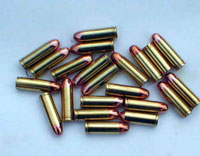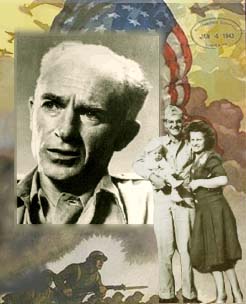|
 THE
VigilanceVoice THE
VigilanceVoice v v
Dec. 26—Wednesday—Ground Zero Plus 106
HAVE WE HAVE FORGOTTEN THE TRUE HEROES OF NINE ELEVEN?
By
Cliff McKenzie
Editor, New York City Combat Correspondent News
I knew I shouldn’t compare. But I did.
It was a newscast about the “dangers of being a war
correspondent.” The news reporter was telling the camera how terrible it
was when a sniper fired three rounds at the news crew.
Something inside me wanted to puke. It seemed incredulous a
grown man in a war zone would shove a face of fear into a camera and
tremble at the idea the enemy was trying to kill him.
As a Marine Corps Combat Correspondent in Vietnam, bullets
were like mosquitoes—they were everywhere. I can still hear them zinging
and snapping past my ears and feel the heat of their power brushing
against my flesh as I lay in a furrow of dirt, enemy rounds chewing the
soil around me. I can hear their deadly impact as they sank into the
flesh of those around me, bursting organs, crushing bones.
 |
Sometimes I rail on the government for promoting “war” as some
religious act that America must serve upon the “evil ones” who have
defiled our country by attacking us unexpectedly, killing thousands of
innocent civilians in a horrible act of Terrorism. But I understand the
politics of government. The more it can stand tall as our “protector,”
the more of its policies we embrace without question, without debate,
without the jaundiced eye.
I don’t agree with that system, but I understand it. Someone
had to take “charge” in a crisis, even if we don’t agree with their
strategy or tactics.
But a newscaster cowering in fear over a few bullets headed
his way in a war zone—why, that just symbolizes to me the strength of
Terrorism.
As a Marine, I was trained to be fearless of bullets.
Bullets were part of my job. Our Drill Instructors tried to make us
think we could eat them and crap them out. Our goal was to be fearless
in the face of death because fear brought death quickly to those who let
it creep into their thinking, their feelings.
Don’t misunderstand. Many times I crawled into my helmet, or
tried to, when the bullets criss-crossed like
 |
spider webs and mortars whoomped all around, spitting fragments of steel that could chew your guts
apart in a New York Minute. But “fear” of dying, “fear of being shot,”
“fear of fear,” didn’t last. It came and went. Then you got up and
charged and screamed and fired your weapon as though you were
bullet-proof.
Terrorism thrives on breeding fear after the fact. I saw
that insanity in the newscaster’s face—eyes bulging, mouth open, amazed
someone might try to kill him in a “war zone.”
Combat correspondents, war reporters, war photographers, are
there to record the history of bravery. At least, that’s the take I took
on my mission. War’s horror is not a story. It is a fact. There is no
news in the horror of war. Horror permeates everything about war because
bombs and bullets and land mines have no conscience. They can kill and
maim and murder without compunction the innocent and helpless as well as
the well-armed warrior.
I struggled with my pen to ink onto the pages of history those
moments of bravery and heroism of the guys and kids who risked their
lives—who were fearless about death. I knew many of them might never
return, and felt this need to immortalize them if only for a few seconds
when someone’s eyes touched the black ink of the story and visualized
their acts of heroism, or felt the pain of their suffering for those who
were back home, safe and secure.
I suppose the idea a “war correspondent” would be shocked and
frightened by three bullets struck me with the same revulsion I might feel
if the Commander In Chief was too afraid to walk from his office to the
war room for fear he might expose himself to the enemy.
Winston Churchill, whom I consider both a great warrior and
combat correspondent, for he both fought and wrote, used to ride a white
horse into battle so that his troops could see he was leading them into
the face of potential death and be inspired to follow him. He knew fear
would kill his goal of conquering the enemy, and his brazen attitude
helped him become victorious and catapulted his career in politics.
 |
Ernie Pyle, the famous “dogface war correspondent,” of World
War II didn’t whine about a couple of bullets zinging and zapping
their way toward him. He wanted to promote the troops
who grunted their way through the muck and mire of Europe to
crush the “evil ones” of his day—the Nazis, and all they stood
for.
I considered the newscaster a wimp. I considered
him promulgating the principles of Terrorism rather than squelching
them. By extolling his fear, he only perpetuated
what the news has historically done since Vietnam—politicized
and individualized the news of war.
A true “war correspondent” crawls on his belly into the thick
of the war zone, shooting pictures or jotting notes, with the
same aplomb and fearlessness as the men and women who are paid
to die for their country. It is only when
the feeling of vulnerability races through one’s body and soul
can one earnestly report the war, any war. At that
point when a reporter faces death to get “a story,” he or she
becomes a true “war correspondent.” And only if he or
she doesn’t brag about or promote the fear of doing so, do they
rise above the salt.
In my own case, I have chose to see the bullets of Terrorism
in the foulest of all battlefields—in my own soul.
I see its face in the complacency of the news media to truly
examine the roots of Terrorism instead of its leaves.
I see Terrorism turning news reporters into political pundits,
trying to second guess a government instead of correcting it
as is the sworn duty of the Fourth Estate—to be the watchdog
of Democracy.
If the news media comprised true “war correspondents” it would
promote the need to fight Terrorism in a child. It would
examine the roots of fear, intimidation and complacency in our
society that causes us to feel exempt from parental responsibility
to teach our children courage, conviction and action.
If the news were responsible to be a “watchdog” it would slap
the logos of “Semper Vigilantes” on all its networks, and drive
home the need for each American to become a Parent of Citizen
of Vigilance, and subscribe to the principles of fighting Terrorism
within, not without.
But “hard news” assumes some grand state. It forgets
that the real news is made on the front lines when a child asks
a parent why we are trying to kill “bin Laden,” or whether it
is safe to go to school, or whether the children of the victims
of Nine Eleven will be sad and lonely.
I keep hearing the press promoting the heroism of the police
and firemen and emergency rescuers who died in the tragedy of
Nine Eleven, and elevating them as symbols of Americanism at
its best. And while I am proud of those who died
in the service of their jobs, I am more interested in why we
do not make heroes of the thousands who died as “victims” of
the tragedy?
Wasn’t it the mothers and fathers and grandfathers, and sons
and daughters, and cousins and nieces and nephews and grandmothers
who gave their lives on September 11 that are the true heroes
of that day?
Isn’t the memory of those who innocently walked into the Tower
Of Death on September 11th, or the Pentagon, and
never came out—aren’t they the real heroes? Didn’t
they give their lives unexpectedly for all Americans?
Don’t they symbolize the ultimate sacrifice of any nation—when
the citizens of the nation are willing to die for what they
believe?
Heroes are those unwilling people who die for something greater
than themselves. Each “victim” of Nine Eleven did
just that. They died to unite a nation.
They died to preserve the unity of our country, and to rally
disenfranchised elements into one body.
Yet we persist in calling them victims. We persist in
promoting firemen and police and emergency workers as heroes,
when, the truth is, they volunteered to die. Men
and women who assume dangerous tasks vow to the “right of dying.”
They commit themselves to facing death, and accept that death
is part of their job.
As a Marine, I accepted death. As a war correspondent,
I accepted death.
But, those “heroes” who died on September 11, the more than
3,000 of them, have been neglected. The bullets
and bombs have cast their shadow from the sunlight.
I believe those who died for America on September 11 should
be treated with the same respect we treat the 343 firemen who
died at the World Trade Center, or the four dozen police who
gave their lives.
They are the real heroes the newscaster who was worried about
three bullets should have been reporting about.
If he had thought about them as heroes, he wouldn’t have complained
about being “shot at.” Instead, he would have promoted
the “heroes” who died so he could report the news. He
would have called them “Sentinels of Vigilance,” “Parents of
Vigilance,”—who are still alive and watching out for all the
children of the nation.
If he had been a true “war correspondent,” he would have ridden
his white horse into the center of the World Trade Center and
shoved his camera into the debris and shouted: “They Live!
Our heroes live! Forever, in our memories!
Reminding us to be Vigilant!”
Three stray bullets?
Hardly worthy of even being on the news!
Go To Dec.
25 Diary--"The Gift To Fight Terrorism"
©2001
- 2004, VigilanceVoice.com, All rights reserved - a ((HYYPE))
design

|
|




